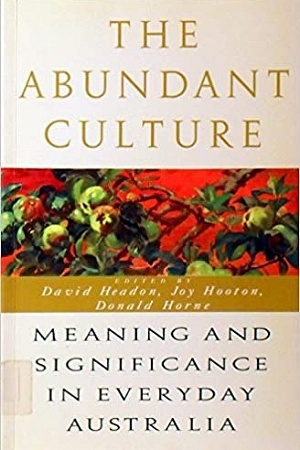The Thirteenth Night: A mother’s story of the life and death of her son
FACP, $24.95 pb, 320 pp
A dark quilt
On the night of 13 September 1993, flight lieutenants Jeremy McNess and Mark Cairns-Cowan were killed when their F-111 crashed at Guyra, in northern NSW. Written by Jeremy’s mother, The Thirteenth Night dwells on the complex fatality of that night, which permanently changed several life stories in an instant. For his mother, who had coped with his exceptionally difficult childhood, winning through in his early teens to a remarkably close relationship, Jeremy’s death was and remains a dark frontier. Beyond lay a strange and cold country. Totally disoriented at first by devastating grief, she found the courage and stamina to pursue the true story of the accident’s cause for five years in the face of institutional defensiveness and media ignorance. This book began as a story for the family, but it is an important book for other readers on several counts.
The first section, dealing with Jeremy’s birth and troubled childhood, will speak to many first-time parents who have discovered that parenting poses challenges that baby-care manuals never mention. It is possible that Jeremy’s difficult birth, hastened by the doctor’s use of vacuum extraction, was the cause of his early misery, although McNess wastes little time on speculation. For her, the reality was how to survive feelings of despair. She details the frustration and depression induced by the unrelenting demands of her son’s first five years, and by the shattering of her dreams of motherhood. Perpetually unhappy, Jeremy drove her to distraction with his constant crying, while his unresponsiveness and slow development sapped her confidence. The unpretentious prose graphically evokes the daily grinding despair of this period, but meanwhile a picture implicitly emerges of the mother’s own strength and determination. Jeremy’s eventual growth into a confident, brilliant, warm young man clearly owed a great deal to her perseverance. During the even more terrible first five years succeeding his death, this aspect of her personality was to serve her well, as the RAAF discovered.
Some judicious editing would have tightened the section dealing with Jeremy’s middle and adult years. Fortunately lightened by touches of irony and humour, which serve to colour Jeremy’s personality and relationships, the story of his and the family’s activities nevertheless has pedestrian stretches of diaristic triviality. In the latter part of the book, however, McNess dives fearlessly into critical experience.
Continue reading for only $10 per month. Subscribe and gain full access to Australian Book Review. Already a subscriber? Sign in. If you need assistance, feel free to contact us.














Leave a comment
If you are an ABR subscriber, you will need to sign in to post a comment.
If you have forgotten your sign in details, or if you receive an error message when trying to submit your comment, please email your comment (and the name of the article to which it relates) to ABR Comments. We will review your comment and, subject to approval, we will post it under your name.
Please note that all comments must be approved by ABR and comply with our Terms & Conditions.